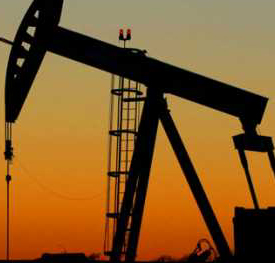International Energy Agency Calls For Rise In World Oil Output
 On May 19, the International Energy Agency (IEA) called for an increase in world oil production, citing "serious concern" regarding elevated crude oil prices.. It was a reflection of consumer countries' frustration at the failure of oil-producing nations to lift output in the face of rising demand and tighter supply.
On May 19, the International Energy Agency (IEA) called for an increase in world oil production, citing "serious concern" regarding elevated crude oil prices.. It was a reflection of consumer countries' frustration at the failure of oil-producing nations to lift output in the face of rising demand and tighter supply.
According to analysts, this marks a shift in how oil producers' policies tend to be discussed, showing a more confrontational attitude toward the main producers over their failure to increase the flow of oil to world markets.
The call for added production also appears to be a move by the agency, which represents twenty-eight developed economies, to distance itself from the period under its departing chief, Nobuo Tanaka. It was seen by many as too accommodating to Saudi Arabia, and too content to accept the Organization of the Petroleum Exporting Countries' views of blaming speculation, rather than market fundamentals, for high prices.
The agency's monthly Oil Market Report, respected by industry practitioners, has recently been warning about tightening market conditions as supply has not caught up with strong demand.
After a two-day meeting, the International Energy Agency's governing board issued a statement expressing "serious concern" at "growing signs that the rise in oil prices since September is affecting the economic recovery by widening global imbalances, reducing household and business income and placing upward pressure on inflation and interest rates."
As global demand for oil typically increases from May to August, "there is a clear, urgent need for additional supplies on a more competitive basis to be made available to refiners to prevent a further tightening of the market," it said.
The agency's board also said it was prepared "to consider using all tools that are at the disposal of IEA member countries." That was seen by analysts as a veiled warning to OPEC that the agency could, in an extreme case, call for its member countries to agree to release emergency oil stocks if the market situation deteriorated.
"So far there hasn't been much reaction in the West to the high prices," said Leo Drollas, Chief Economist at the Center for Global Energy Studies in London. "It now looks like they are being more assertive."
Oil prices, which have been climbing since the end of last summer, have risen more sharply this year amid turmoil in North Africa and the Middle East. Light, sweet crude for July delivery fell $1.66 to $98.44 a barrel on Thursday in New York. It rose to almost $115 in April.
Despite commitments from Saudi Arabia, the biggest OPEC producer, to use its spare capacity to increase output and replace the supplies lost because of the uprising in Libya, the cartel's production is now running 1.3 million barrels a day below the level seen before the crisis, according to the IEA.
 On May 19, the International Energy Agency (IEA) called for an increase in world oil production, citing "serious concern" regarding elevated crude oil prices.. It was a reflection of consumer countries' frustration at the failure of oil-producing nations to lift output in the face of rising demand and tighter supply.
On May 19, the International Energy Agency (IEA) called for an increase in world oil production, citing "serious concern" regarding elevated crude oil prices.. It was a reflection of consumer countries' frustration at the failure of oil-producing nations to lift output in the face of rising demand and tighter supply.